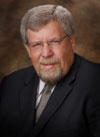 Wisconsin Lawyer
Wisconsin Lawyer
Vol. 84, No. 5, May 2011
Question
I’m thinking of creating a Facebook page for my law firm. Are there any rules that I should be concerned about?
Answer
The use of social media to market a lawyer’s practice or law firm is becoming far more common, although it is still an area that is not subject to review by disciplinary authorities. Generally, a Facebook (or LinkedIn) page that advertises a law firm or a lawyer’s practice would be treated the same as a Yellow Pages ad for purposes of review under the Rules of Professional Conduct. The rules that would apply to the content of a Facebook page are SCR 20:7.1 and SCR 20:7.3.
SCR 20:7.1 provides as follows:
SCR 20:7.1 Communications concerning a lawyer’s services
A lawyer shall not make a false or misleading communication about the lawyer or the lawyer’s services. A communication is false or misleading if it:
(a) contains a material misrepresentation of fact or law, or omits a fact necessary to make the statement considered as a whole not materially misleading;
(b) is likely to create an unjustified expectation about results the lawyer can achieve, or states or implies that the lawyer can achieve results by means that violate the Rules of Professional Conduct or other law; or
(c) compares the lawyer’s services with other lawyers’ services, unless the comparison can be factually substantiated; or
(d) contains any paid testimonial about, or paid endorsement of, the lawyer without identifying the fact that payment has been made or, if the testimonial or endorsement is not made by an actual client, without identifying that fact.
 Dean R. Dietrich, Marquette 1977, of Ruder Ware, Wausau, is chair of the State Bar Professional Ethics Committee.
Dean R. Dietrich, Marquette 1977, of Ruder Ware, Wausau, is chair of the State Bar Professional Ethics Committee.
Under this rule, the statements that are made on the Facebook page must be truthful and must not misrepresent or “over-represent” the services provided by the law firm. It is important to not indicate that your services are better than the services of another named lawyer unless you can prove that very clearly and succinctly. Also, you cannot pay for recommendations on a Facebook or LinkedIn page unless you properly identify that the recommendation has been paid for.
The provisions of SCR 20:7.3 are not directly applicable to the Facebook page itself but rather are applicable to conduct that a lawyer can engage in on the Facebook page or LinkedIn page. Most important, a lawyer may not engage in communication with a prospective client by using the Facebook page unless the lawyer complies with the requirements of SCR 20:7.3. The applicable provisions are the following:
SCR 20:7.3 Direct contact with prospective clients
(a) A lawyer shall not by in-person or live telephone or real-time electronic contact solicit professional employment from a prospective client when a significant motive for the lawyer’s doing so is the lawyer’s pecuniary gain, unless the person contacted:
(1) is a lawyer; or
(2) has a family, close personal or prior professional relationship with the lawyer.
(b) A lawyer shall not solicit professional employment from a prospective client by written, recorded or electronic communication or by in-person, telephone or real-time electronic contact even when not otherwise prohibited by par. (a), if:
(1) the lawyer knows or reasonably should know that the physical, emotional or mental state of the person makes it unlikely that the person would exercise reasonable judgment in employing a lawyer; or
(2) the prospective client has made known to the lawyer a desire not to be solicited by the lawyer; or
(3) the solicitation involves coercion, duress or harassment.
(c) Every written, recorded or electronic communication from a lawyer soliciting professional employment from a prospective client known to be in need of legal services in a particular matter shall include the words “Advertising Material” on the outside envelope, if any, and at the beginning and ending of any printed, recorded or electronic communication, unless the recipient of the communication is a person specified in pars. (a)(1) or (a)(2), and a copy of it shall be filed with the office of lawyer regulation within five days of its dissemination.
The term real-time electronic contact has not been clearly defined in the Rules of Professional Conduct. A direct real-time communication such as G-Chat or instant messaging would likely qualify and is prohibited under the provisions of SCR 20:7.3(a) except in limited situations. A posting to a Facebook page likely would not constitute real-time electronic contact. It certainly would constitute “electronic communication,” which requires compliance with SCR 20:7.3(c). Under that rule, a posting to another person’s or entity’s Facebook page, which is a direct solicitation of professional employment from a prospective client, would need to include the words “advertising material” at the beginning and end of the electronic communication. This would only apply if there is a posting on a Facebook page that is directly targeted to seeking representation by a particular individual. A posting on a Facebook page that is a general solicitation of legal services would be characterized the same as a Yellow Pages ad and must be in compliance with the requirements of SCR 20:7.1(a) of the rules.
Lawyers may create a Facebook page for their law firm or their individual practice but must remember that they have to comply with the advertising rules with particular focus on the content of the Facebook page. The same is true of other social media outlets such as LinkedIn, MySpace, and so on. Lawyers should exercise caution to ensure they comply with the Rules of Professional Conduct.
Wisconsin Lawyer
